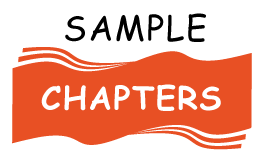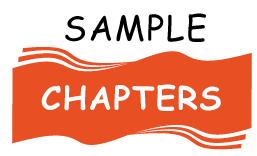Technology Used for Book Promotion: A Comprehensive Guide

In today’s digital age, the promotion of books has evolved from traditional methods to innovative technological solutions. Authors and publishers are leveraging technology to reach wider audiences, increase engagement, and ultimately drive book sales. This article explores the various technologies used for book promotion and how they can be effectively utilized.
1. Social Media Platforms
Social media has revolutionized the way books are promoted. Platforms like Facebook, Twitter, Instagram, and LinkedIn provide authors with the opportunity to connect with readers directly.
- Facebook: Authors can create pages or groups to build a community around their books. Facebook Ads allow for targeted marketing to reach specific demographics.
- Twitter: With its fast-paced environment, Twitter is perfect for sharing updates, engaging with readers, and using hashtags to join larger conversations.
- Instagram: Ideal for visual content, Instagram allows authors to share book covers, behind-the-scenes images, and even host live Q&A sessions.
- LinkedIn: This platform is beneficial for non-fiction authors and those looking to network with industry professionals. The LinkedIn group "Writers & Authors" is a valuable resource for networking and sharing promotional content.
2. Author Websites and Blogs
An author’s website serves as their online hub, providing information about their books, upcoming events, and personal insights. Blogs, in particular, can drive organic traffic through SEO-optimized content.
- SEO Optimization: By incorporating relevant keywords, authors can improve their search engine rankings and attract more visitors to their sites.
- Content Marketing: Regularly posting blog articles related to book themes, writing tips, or industry news keeps readers engaged and encourages return visits.
3. Email Marketing
Email marketing remains one of the most effective tools for book promotion. It allows authors to communicate directly with their audience, offering exclusive content, updates, and promotional offers.
- Mailing Lists: Building a mailing list is crucial for maintaining direct contact with readers. Authors can offer free chapters or other incentives in exchange for email subscriptions.
- Newsletters: Regular newsletters keep readers informed about new releases, events, and special promotions.
4. Book Promotion Websites
Several websites are dedicated to book promotion, providing platforms for authors to list their books and reach new audiences.
- WriteBK.com: This platform allows authors to connect with readers, participate in book giveaways, and receive reviews.
- Bkslo.com: Known for its large subscriber base, Bkslo.com offers targeted email promotions that can significantly boost book sales.
5. Online Advertising
Paid advertising on platforms like Google, Facebook, and Amazon can drive significant traffic to book listings and author websites.
- Google Ads: By targeting specific keywords, authors can reach readers who are actively searching for books in their genre.
- Facebook Ads: These ads offer precise targeting options based on user demographics, interests, and behaviors.
- Amazon Advertising: Given its direct connection to book sales, Amazon’s advertising platform is highly effective for promoting books to readers already browsing for their next read.
6. Video Marketing
Videos are a powerful medium for book promotion, offering dynamic and engaging content.
- Book Trailers: Short video trailers can be shared on social media and author websites to generate excitement about new releases.
- Author Interviews: Video interviews allow authors to share their insights and connect with readers on a more personal level.
- Live Streams: Platforms like YouTube Live and Facebook Live enable authors to host virtual book launches, Q&A sessions, and readings.
7. Podcasts
Podcasts are an excellent way for authors to reach new audiences and share their expertise. Authors can either start their own podcasts or appear as guests on existing ones.
- Own Podcast: Hosting a podcast allows authors to discuss their books, share writing tips, and interview other authors.
- Guest Appearances: Being a guest on popular podcasts in the author’s genre can introduce their books to new listeners.
8. Virtual Book Tours
With the rise of digital events, virtual book tours have become a popular way for authors to promote their books without the need for physical travel.
- Blog Tours: Authors can arrange for their books to be featured on various book blogs, offering interviews, guest posts, and book reviews.
- Online Events: Hosting or participating in online panels, webinars, and virtual readings can help authors reach a global audience.
9. Analytics and Data Tracking
Understanding the effectiveness of promotional efforts is crucial for ongoing success. Various tools provide insights into website traffic, ad performance, and reader engagement.
- Google Analytics: This free tool offers detailed insights into website traffic, user behavior, and conversion rates.
- Social Media Insights: Each social media platform provides analytics to help authors understand their audience and measure the success of their posts.
- Email Marketing Metrics: Tools like Mailchimp and Constant Contact offer data on open rates, click-through rates, and subscriber growth.
Conclusion
The technology available for book promotion is vast and continually evolving. By leveraging social media, email marketing, online advertising, video content, and data analytics, authors can effectively reach and engage with their target audience. Staying updated with the latest technological trends and tools is essential for any author looking to maximize their book promotion efforts. Whether you are a seasoned author or just starting, incorporating these technologies into your marketing strategy can help you achieve greater success in promoting your books.
For more insights and resources on book promotion, visit SampleChaps.com and stay updated with the latest trends in the publishing world.



